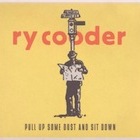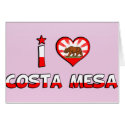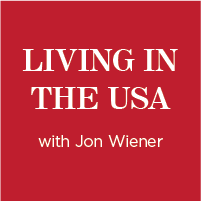LISTEN ONLINE TO THIS SHOW– SUBSCRIBE TO PODCAST
Last night Senate Republicans blocked Obama’s jobs bill, which would have taxed millionaires to fund infrastructure construction, repair schools, and rehire cops, teachers, and firefighters who have been laid off. Meanwhile, Occupy Wall Street grows. JOHN NICHOLS will comment–he writes “The Beat” blog at TheNation.com.
 Big Bill Broonzy – he left the Mississippi Delta to become a leading Chicago bluesman of the 1930s, singing about racial injustice alongside Pete Seeger and Studs Terkel; then traveling to Europe to ignite the British blues-rock revival of the 1960s with Eric Clapton and Pete Townshend. BOB REISMAN explains – his new book is I Feel so Good: the Life and Times of Big Bill Broonzy.
Big Bill Broonzy – he left the Mississippi Delta to become a leading Chicago bluesman of the 1930s, singing about racial injustice alongside Pete Seeger and Studs Terkel; then traveling to Europe to ignite the British blues-rock revival of the 1960s with Eric Clapton and Pete Townshend. BOB REISMAN explains – his new book is I Feel so Good: the Life and Times of Big Bill Broonzy.
Playlist: “Black, Brown, and White,” “This Train,” “I Feel So Good.”
 Also: Whatever happened to the American left? MICHAEL KAZIN says socialists. anarchists and communists never won much political power, but nevertheless their utopian spirit brought far-reaching cultural change. And then there were the Abolitionists: we could learn a lot from them. Michael’s new book is American Dreamers: How the Left Changed a Nation.
Also: Whatever happened to the American left? MICHAEL KAZIN says socialists. anarchists and communists never won much political power, but nevertheless their utopian spirit brought far-reaching cultural change. And then there were the Abolitionists: we could learn a lot from them. Michael’s new book is American Dreamers: How the Left Changed a Nation.
 Also:
Also:  Plus: The rise of a new American security state: Pulitzer-Prize winner
Plus: The rise of a new American security state: Pulitzer-Prize winner  Also: The US effort to “Rebuild Iraq”: how about a plant producing frozen chicken — in a country with no electricity for refrigeration?
Also: The US effort to “Rebuild Iraq”: how about a plant producing frozen chicken — in a country with no electricity for refrigeration?  Plus: L.A.’s jails are the worst in the nation – that’s what the ACLU says in a
Plus: L.A.’s jails are the worst in the nation – that’s what the ACLU says in a  Georgia plans to execute Troy Davis Wed. at 4:00pm Pacific — despite impressive evidence that he is not guilty, and support for him from Jimmy Carter, the former head of the FBI under Reagan, and Pope Benedict XVI. KPFK is preempting regular programming, including our show, for a Democracy Now! live broadcast from outside the state prison in Jackson, Ga.
Georgia plans to execute Troy Davis Wed. at 4:00pm Pacific — despite impressive evidence that he is not guilty, and support for him from Jimmy Carter, the former head of the FBI under Reagan, and Pope Benedict XVI. KPFK is preempting regular programming, including our show, for a Democracy Now! live broadcast from outside the state prison in Jackson, Ga.
 Also: How movie stars shaped American politics:
Also: How movie stars shaped American politics: 
 NCES MOORE LAPPE
NCES MOORE LAPPE 
 Plus: the Battle for COSTA MESA: the Republican city in deep Orange County is under attack from right-wing Republicans —
Plus: the Battle for COSTA MESA: the Republican city in deep Orange County is under attack from right-wing Republicans —  Plus the media’s role in the fate of the world:
Plus the media’s role in the fate of the world: 
 Plus: the L.A. Art scene in the 1960s: in 1960 L.A. had no museum showing contemporary art, and only a few galleries — which is exactly what Ed Ruscha, David Hockney, Judy Chicago and John Baldessari liked about it.
Plus: the L.A. Art scene in the 1960s: in 1960 L.A. had no museum showing contemporary art, and only a few galleries — which is exactly what Ed Ruscha, David Hockney, Judy Chicago and John Baldessari liked about it. 